Course Travel & Delays:
How to get there: The Virgin West Coast rail line means we can be reached by rail from London Euston in 3 hours on any day of the week. We run courses from three venues in the UK – so please ensure that you have received and printed the correct arrival information!
Very Important – Do not book any trains, transport or other accommodation until given the go-ahead by Wild Human, as the course needs a minimum number of participants in order to run.
Delays and Late arrivals:
Late arrivals will have to make their own way to the course venue. Wild Human will not be responsible for any costs incurred by late arrivals or late returns that are outside of our control.
Do I need prior experience?
Not at all. If you enjoy being outdoors and are keen to learn – we will welcome your company. Although previous camping experience can be an advantage on the overnight courses, it is not essential. Some of our more advanced courses do have pre-requisites; please see course details.
Can I attend on my own?
Yes! Our bushcraft courses are aimed at private individuals who have a passion to learn. Although some people attend in pairs or small groups, the vast majority of our groups are made up of individuals from a wide variety of backgrounds.
What about bad weather?
Courses will run in all but the most extreme weather conditions. Bad weather makes learning the skills more challenging and harder to master, but you will be rewarded with a higher level of ability and a greater sense of achievement. The unpredictable weather in Britain makes it one of the best training grounds in which to learn bushcraft. In addition we have a large, light and airy, wood-stove heated geodesic dome, which we use for difficult weather conditions, out of season courses and craft workshops.
Sanitation & Hygiene –
Courses are run from an expedition-style base camp, this means that our toilet facilities are screened, covered latrines. We have used this system for the past 10 years of our teaching experience and find it to be the cleanest, most environmentally friendly and hygienic system. It is an essential part of wilderness living and you will be given clear instruction about latrine construction, considerations for wilderness travel and base camp life, and a few simple protocols about hygienic use upon arrival to base camp. In addition a basic, screened expedition gravity fed shower will be available for your use.
Terms & Conditions –
Before placing a booking, please take a moment to observe our uk terms & conditions of booking, particularly for our cancellation policy. We also highly recommend that you seek insurance against the unfortunate event that you should need to cancel your place unexpectedly – missed course bookings are not transferable.
I would like to cancel my course?
If, for any reason you wish to cancel your course, please refer to our Terms & Conditions. You will not be offered a refund for any money for late cancellation, neither will you be offered a transferral of your money to another course. Please seek appropriate insurance against late cancellation due to unforeseen circumstances!
Can I attend from continental Europe and beyond?
Many people travel from outside of the UK to attend our courses; often from continental Europe, but also from further afield such as New Zealand and the USA. Providing you have a good grasp of the English language, can understand this website and feel that you will understand detailed verbal information and instruction there is no problem for you to join us for a course. Please be aware that the Lake district can be much colder and wetter during the summer than many continental countries and so please take our kit list very seriously.Many airlines fly into Manchester airport, where you can board a train to Oxenholme (Please note that some journeys to Oxenholme may require you to change trains at Preston, although many are direct to Oxenholme). At Oxenholme, you will need to change trains for one stop to Windermere. This journey usually takes between 2 hrs and 2 hrs 45min depending on connections. A standard saver return costs approximately £ 35.00, although with a bit of forward planning, you can purchase single tickets each way for as little as £8.50 each way.
Newcastle airport is also an option, and being a smaller airport is in some ways more convenient. If you decided to opt for Newcastle airport you need to take the Metro to Newcastle Central Station, cost £ 2.40. From Newcastle Central Station take the train to Carlisle, where you change for Oxenholme, change at Oxenholme for one stop to Windermere, where we will collect you. This journey usually takes about three and a half-hours and a standard saver return costs approximately £ 35.00.
Where can I stay before / after my course? If you are interested in spending some time enjoying the stunning scenery of the Lake District, either before or after your course, you can contact Windermere Tourist Information via their website
Course arrival / departure times?
For almost all our courses we meet at 19:30 hrs on the evening of the course start date (19:00 hrs if you are arriving by train) and you will be back to your cars by 16:00 hrs on the last day of the course (17:00 hrs at the train station). However, specific course times, arrival details and equipment lists are contained in the email that you will receive automatically once you place your on-line booking.
What happens upon arrival?
Our bushcraft courses usually start in the evening. Upon meeting us at the rendezvous point, your cars will be safely parked on the estate and your equipment will be transported to the base camp, by the Wild Human 4×4. From your cars you may be asked to walk the stunning 2km walk to our base camp, so please be dressed for any weather, and have your boots and head-torch to hand. Once at base camp, you will erect your tent or sleeping system and join the main fire. After a brew, some bread and soup, and safety briefings, you will be introduced to each other, the Wild Human team and to the course. You will also be shown the camp set up and simple protocols will be explained. You will spend the evening having a chat around the fire and teaching will begin the following morning.
What will I be eating?
All meals are cooked on site. Food preparation and cooking will be a joint effort, involving both students and staff. All of our full time staff hold ‘food handling and hygiene’ certificates. All our courses and expeditions are fully catered, however you may be required to cook for yourself or in groups on occasion, forming part of the educational aspects of the course (please see individual course page for further information). A typical days food would be: Breakfast – tinned fruit and various cereal options; Lunch – bread rolls, a selection of fillings (e.g. cheese, ham, tuna), a healthy salad, fruit and snacks; Evening meal – Rice dishes with Thai, Indian & Chinese style curries; or pasta with Italian style, tomatoes based, sauces. Course participants are usually pleasantly surprised by the high standard of the food and meals we provide, however please remember that this is an expedition style base camp and therefore has inherent limitations with regards to producing meals to cater for individual tastes. Whilst we are proud of the tasty, nutritious meals we produce with basic amenities, but our focus is to educate, not to compete with restaurants.There will always be a brew pot on the go and a biscuit box available, so that students are free to make tea and coffee at any time. The food provided will be more than adequate, but feel free to bring extra provisions if you wish.
We are happy to cater for medical intolerance’s, allergies and for vegetarian diets, but please let us know when you place your booking. However, we do not cater for preferences or mild intolerance’s. If you have a dietary intolerance of any kind then you are kindly asked to bring your own snacks, gluten free bread, and any other specifics you may feel necessary. If you are in doubt then do contact us to discuss options. If you have very specific requirements or very serious allergies then you may be asked to bring your own food and cooking equipment so please inquire about this before booking on-line.
Are the courses tough?
Our bushcraft courses should be viewed as being a wilderness education experience and not as an ordinary holiday. They are educational courses, but just as importantly, they are a ‘hands on’ experience and at times can be quite challenging. Due to the nature of the location and the course content, you will be expected to take short hikes over uneven terrain, therefore a good level of fitness is required – on occasion you will be wet, muddy, tired, too hot, too cold, frustrated and exhilarated!
Where will I park my car and will my stuff be safe? Courses are conducted on a private estate, with limited access to the general public. There are parking facilities provided within the estate, and whilst we cannot guarantee the safety of your vehicle, there have never been any incidents of theft within the grounds. We would recommend that you keep any valuable personal belongings in your day sack. From your cars, you and your kit will be driven to our base-camp location, therefore it is not essential that you pack all your equipment into one rucksack, you will not be required to walk more than 100m to the camping area. Please note, that once at base-camp you will not return to your vehicle until the end of the course.
Is it safe?
“Adventure is a romantic name for trouble…” At Wild Human the opposite is true, as you will get the opportunity to learn wilderness living skills in a safe and controlled environment, where making mistakes will not put you in danger. However you must come in the knowledge that no outdoor activity is entirely without risk, as you may be using sharp tools or walking across uneven terrain. Accidents can happen. We advise you take out adequate adventure travel insurance for the duration of your course or expedition – here is a link to one bushcraft specific insurance company – Sports Cover Direct. The biggest risk to your welfare is from ticks, but through good bite avoidance measures they should not present any problems – you will be well briefed at the start of each course.
Alcohol?
Alcohol is strictly forbidden on all our courses, due to the obvious health and safety risks. Alcohol and cutting tools don’t mix! On some of the foraging course we bend the rules a little.
Axes?
Axes must not be used at any time, unless the individual student can prove competence and has permission from the Wild Human instructor leading the course.
Dogs?
Pets are not permitted on any of our courses – sorry!
Mobile Phones?
Mobile phones are permitted, but please use them very quietly & discreetly! Please bare in mind that you may not get a signal at our sites. EE receives the best reception. We do not provide facilities for charging phones there are many external battery packs available.

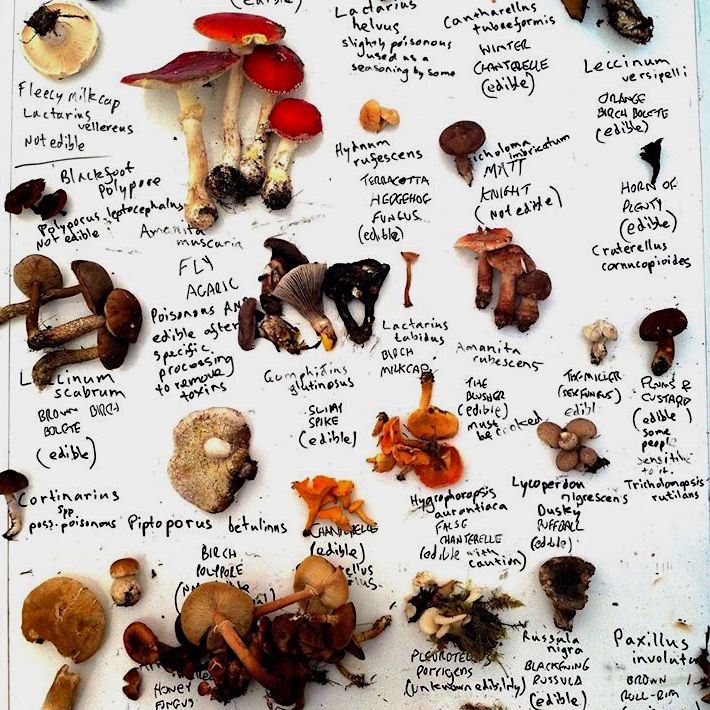
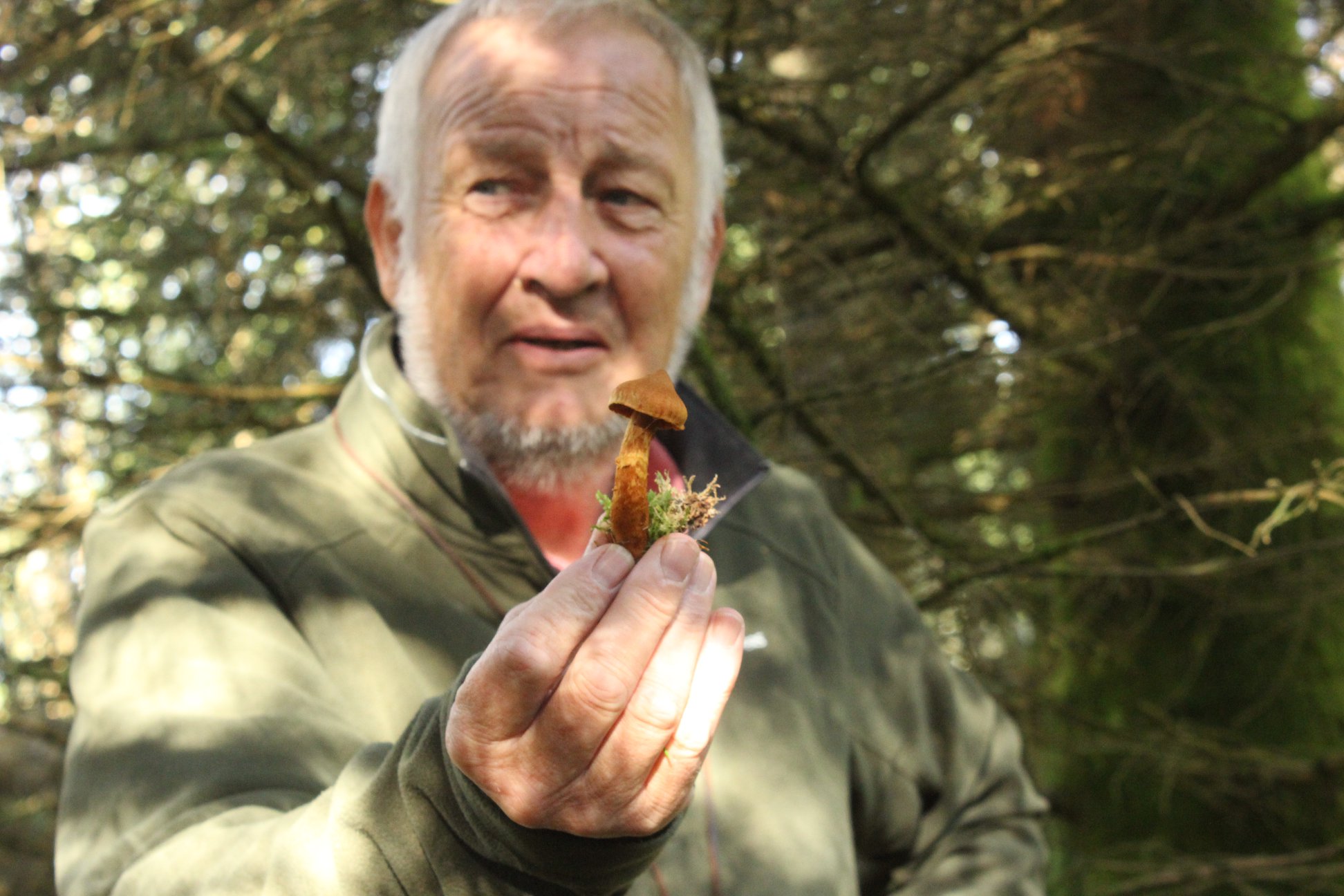
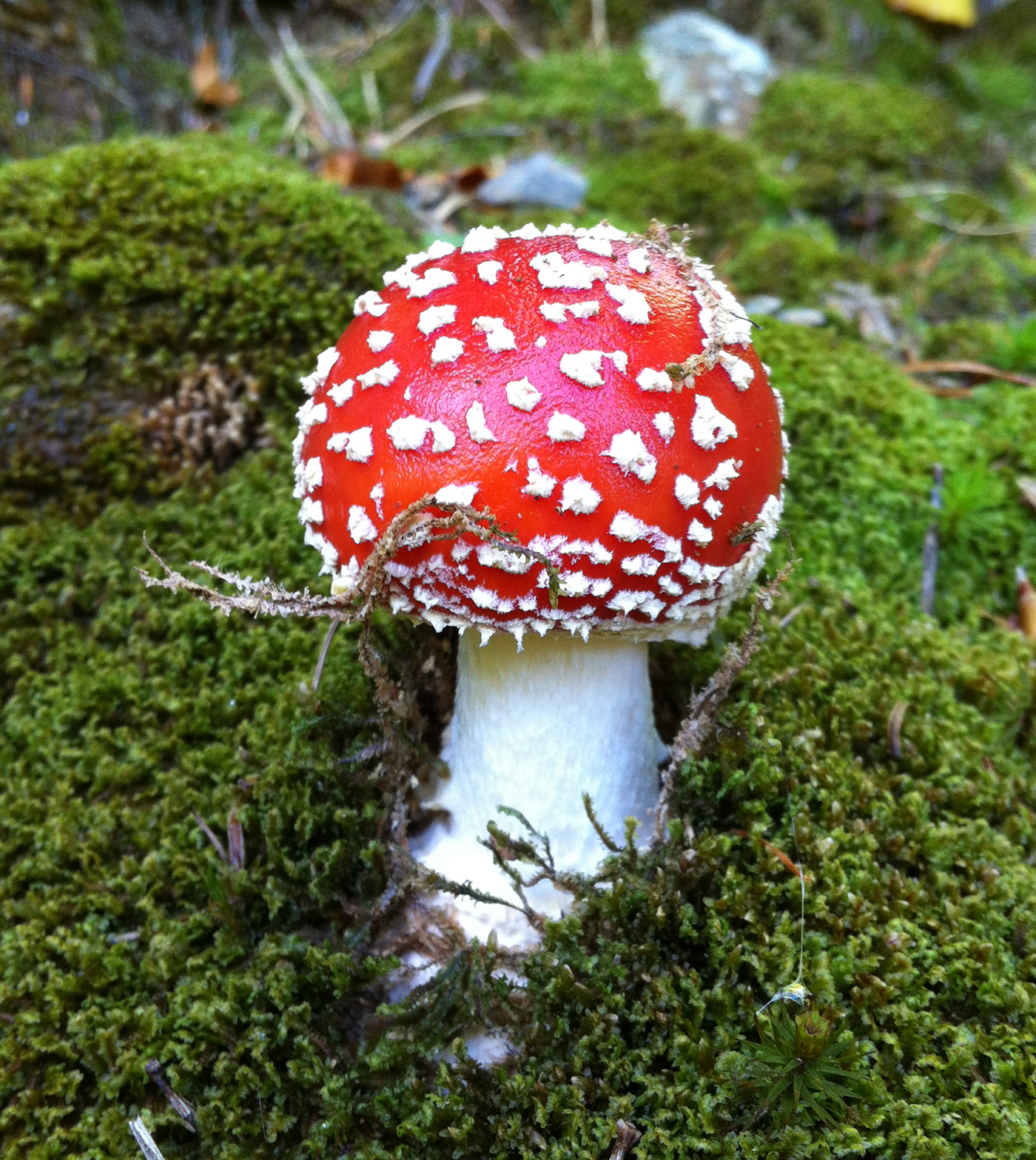
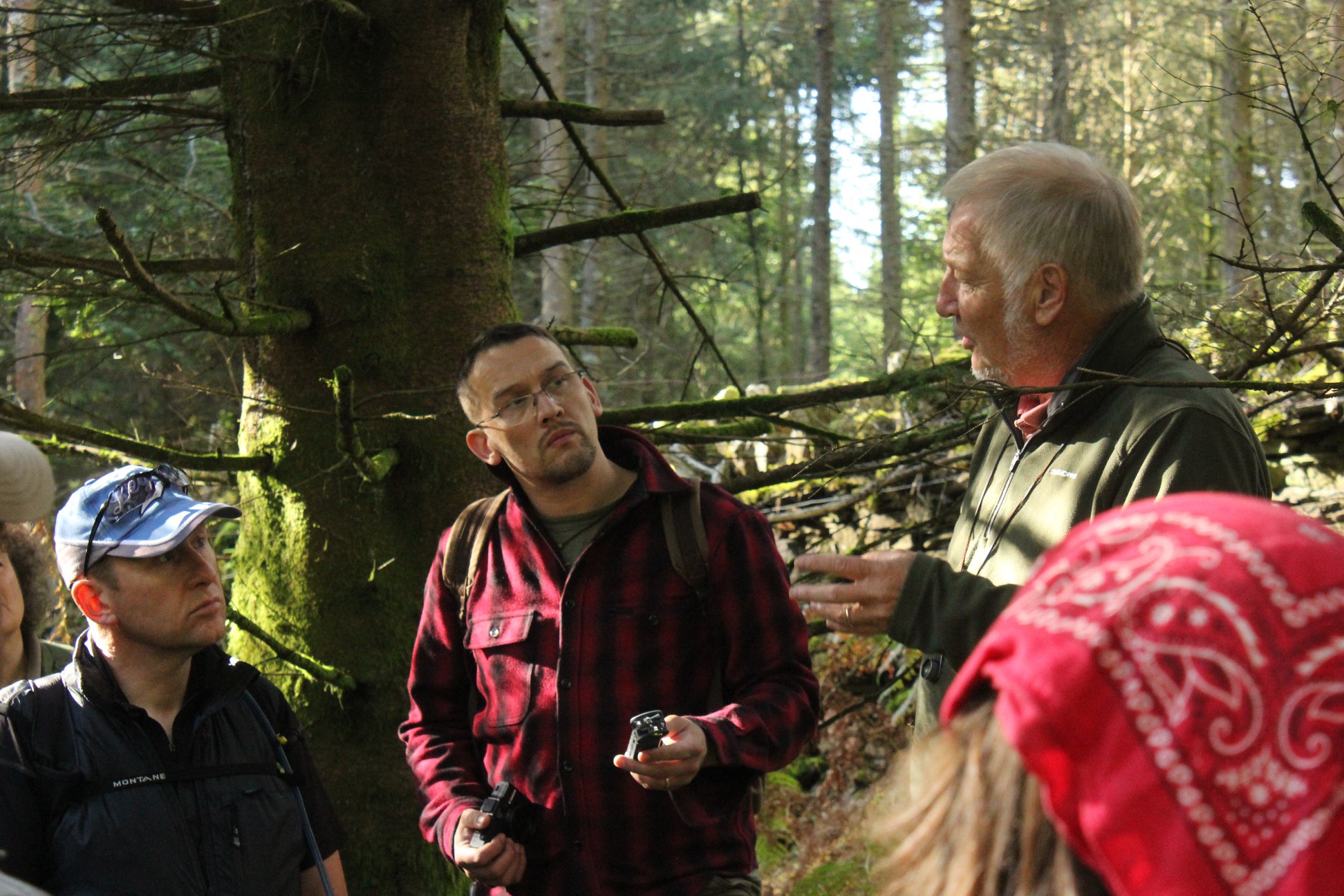
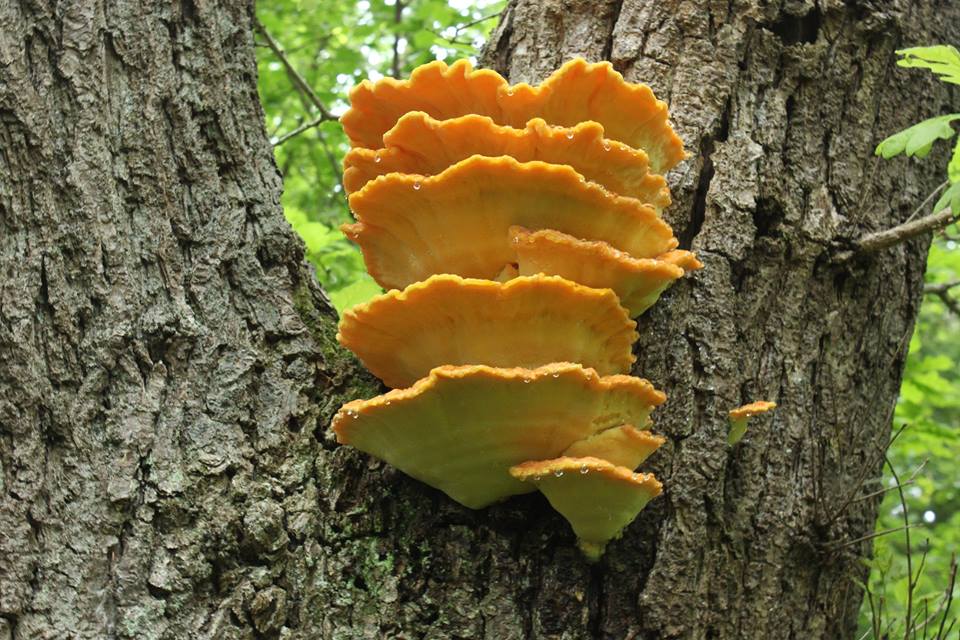
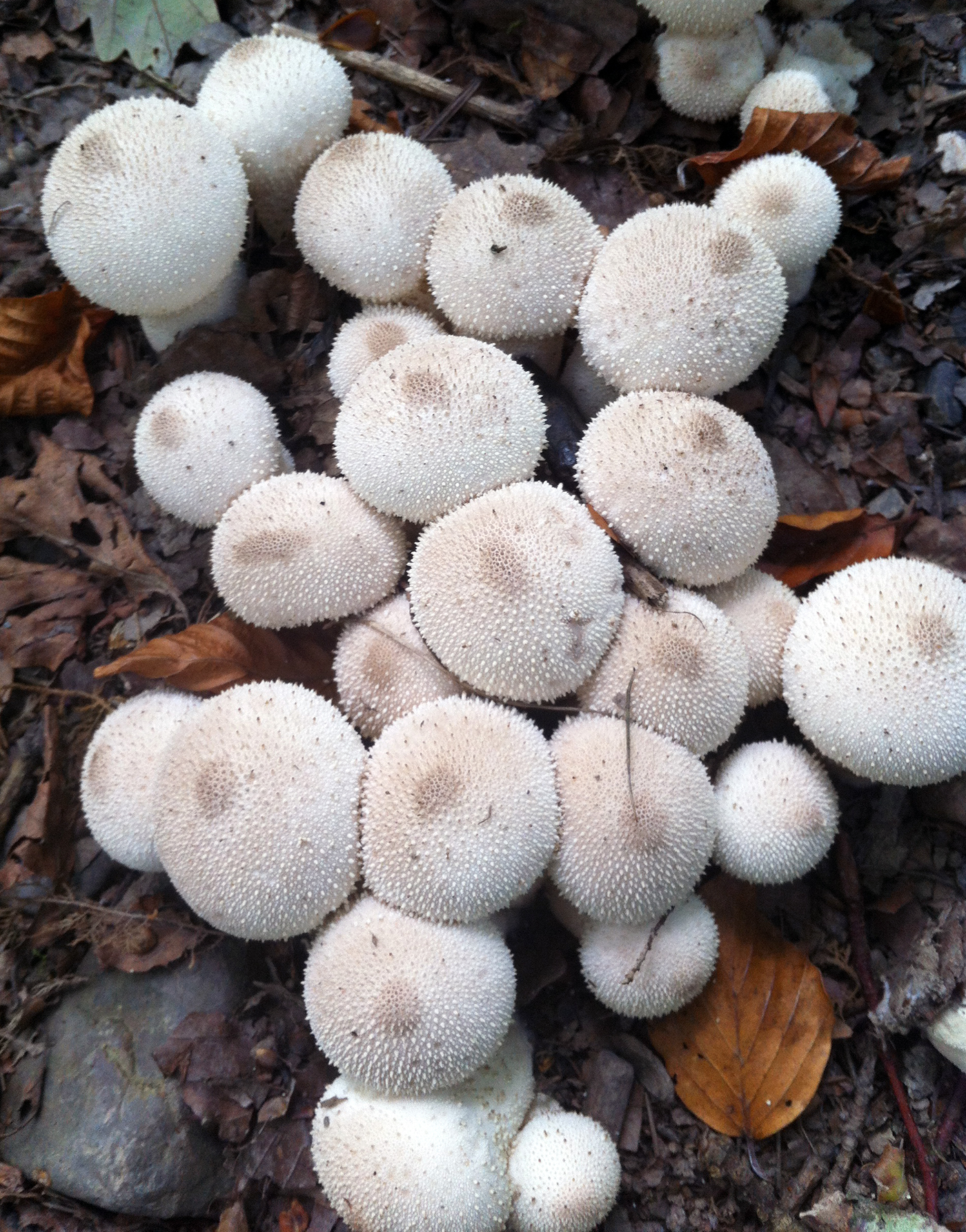
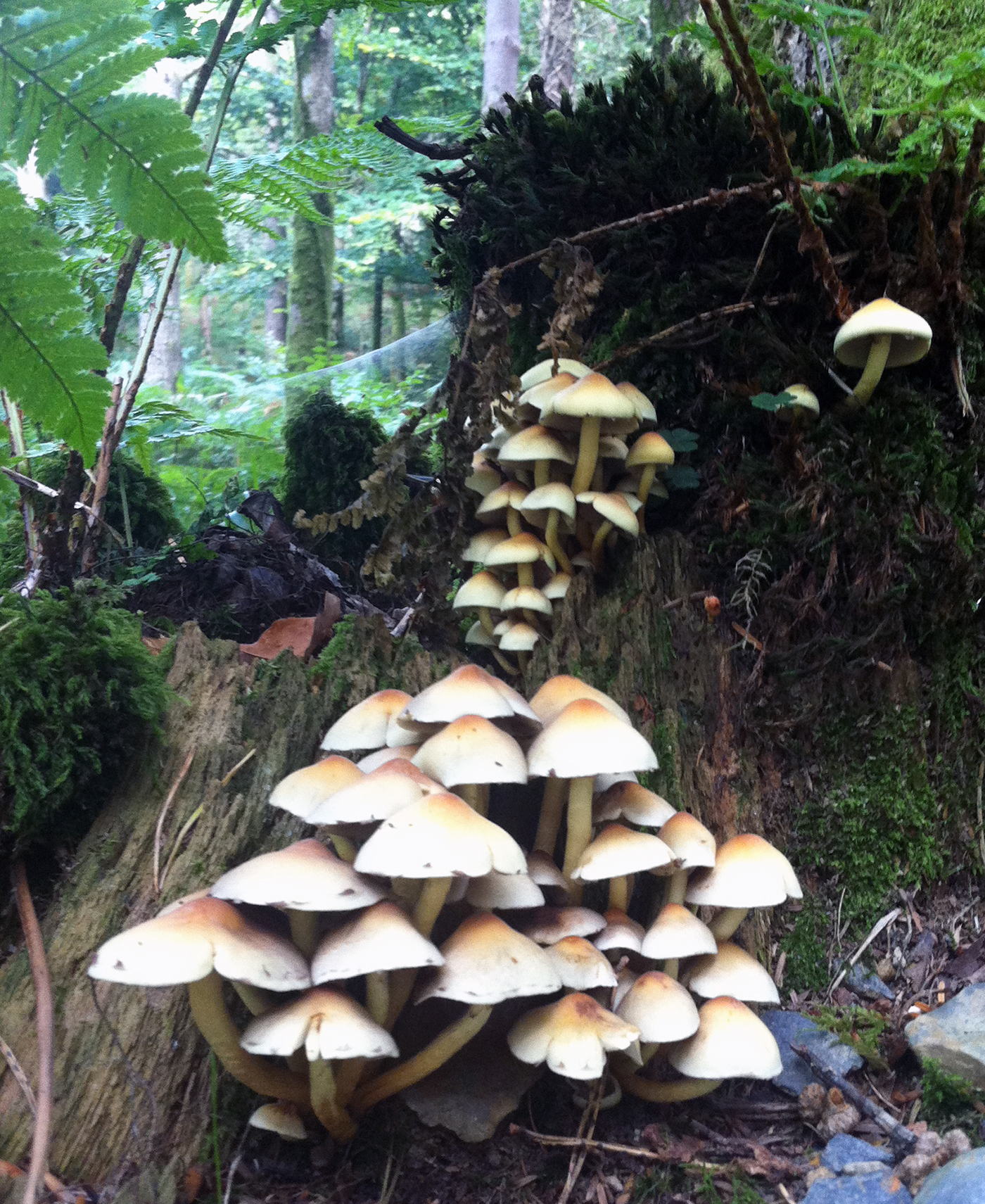

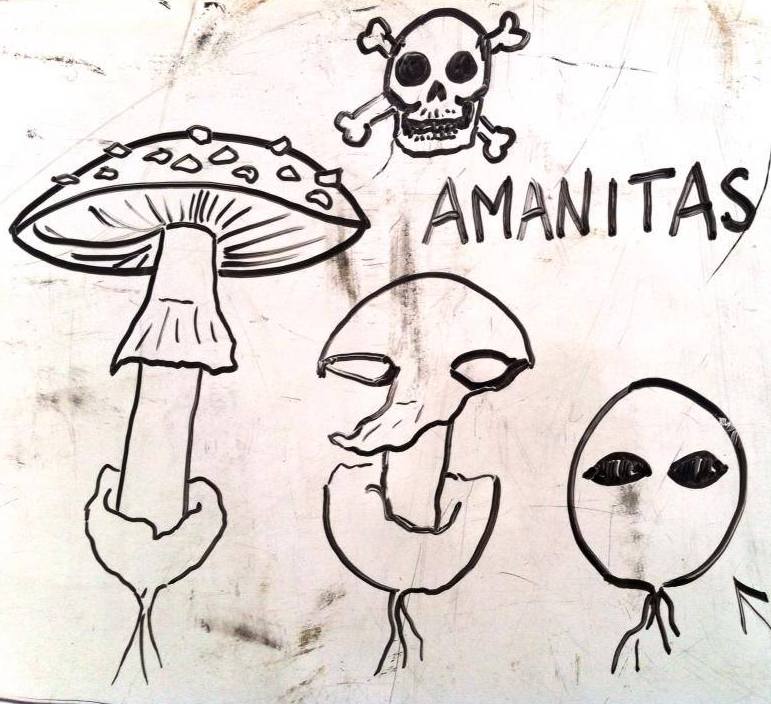
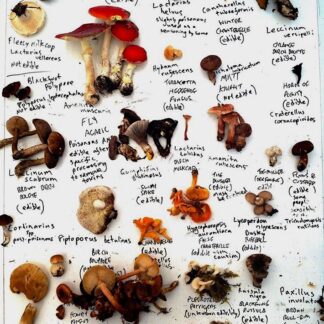
annlbruce73 (verified owner) –
A really lovely day – packed with information, and a little feast of freshly foraged fungi cooked by a tarn. Very knowledgeable guide, and we learned loads. And, at the risk of using a terrible old pun, he was a fun-guy too. Really enjoyable for adults and children alike. Would definitely recommend this day course.
rachforrest –
Paul and Ben are really knowledgeable and are able to answer all sorts of questions. We were carefully introduced to a variety of mushrooms and their species. I felt that I learnt how to identify local fungi that were edible and non edible. I especially loved chicken of the woods! The mushrooms at lunchtime were delicious!
Thanks so much, would definitely recommend this course!
lozm7 –
I found the day a great way to learn about fungi with it being hands. The expert guide and team gave many words of widom that I’ll apply on my own forages. A highlight was eating some of the forage cooked out in nature.
grahamblackall95 (verified owner) –
My wife and I joined the course on 26th of September
The instructors were superb and Paul (the excellent Mycologist) has a fantastic way of allaying fears about accidentally poisoning yourself!
The finds were varied, they included chefs favourites often seen on TV and the classic “poisonous toadstool!”
At the end of the course and with Paul’s key guides to fungi, you’ll be happy to pick and identify, edible, non-edible, and a new word to me, “deadible!” species
All in all, a great day and well worth attending!